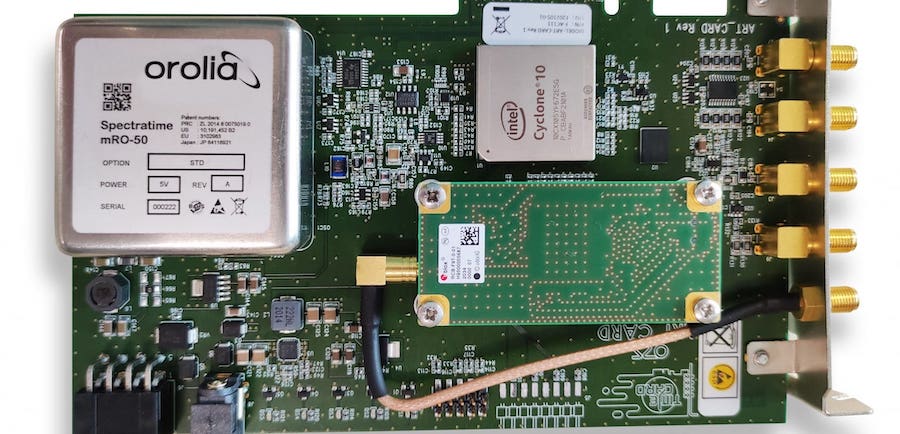Orolia is providing Atomic Reference Time (ART) Cards in a collaborative partnership with Meta.
Orolia ART card architecture is powered by the company’s industry-leading mRO-50 mini rubidium atomic clock technology, a breakthrough low-SWaP-C miniaturized rubidium oscillator designed to meet the latest commercial, military and aerospace requirements where time stability and power consumption are critical. It is the first PCIe card to include an atomic time reference from Orolia, the mRO-50 and a multi-frequency, multi-constellation GNSS receiver.
Orolia is a world leader in resilient positioning, navigation and timing (PNT) technologies. The company’s solutions are known to improve the reliability, performance and safety of critical, remote or high-risk operations, including in GNSS-denied environments. Orolia’s ART Card couples with Open Compute Project’s PTP-OCP driver, which its Precision Time Protocol hardware clock (PHC) interface for time synchronization.
Meta is implementing high-precision timing protocols within its distributed timing infrastructure. It has been collaborating with Orolia to develop a unique open-source solution with mRO-50 technology to ensure enduring timing accuracy and resilience. Meta’s goal has been to fulfill a new specification it published for the Time Appliances Project Initiative of the Open Compute Project. Initiated in 2011, The Open Compute Project aims to apply the benefits of open source and open collaboration to hardware and thus rapidly increase the pace of innovation. This collaborative community works to design from scratch new hardware and software to efficiently support the critical timing accuracy and resiliency demands of computer network infrastructure.
Meta began converting its data center servers to a new time distribution service in 2020, based on network time protocol and precision time protocol. The new service, developed in-house and later open-sourced, improves the accuracy of timekeeping within the Meta infrastructure from ten milliseconds to 100 microseconds, and, importantly, it is more scalable than previous services. With the integration of Orolia’s ART Cards, Meta’s new timing platform will become even more accurate and resilient, opening new opportunities in a range of challenging application areas.
The card
Developed with long term support in mind, Orolia’s ART Card delivers management, disciplining, and monitoring functions that can be integrated into any computer with a PCIe port. It provides highly accurate and resilient timing for the most demanding applications such as NTP/PTP time reference, time stamping and latency calculation.
It features sub-1µs/24h holdover performance and its open-source software suite includes a driver, monitoring daemon and disciplining algorithm supported by the timing, PNT, data center community. Orolia’s ART Cards is compatible with existing NTP and PTP implementations, with open architecture that can easily be customized and can be configured to support Galileo’s open service navigation message authentication (OS-NMA).






